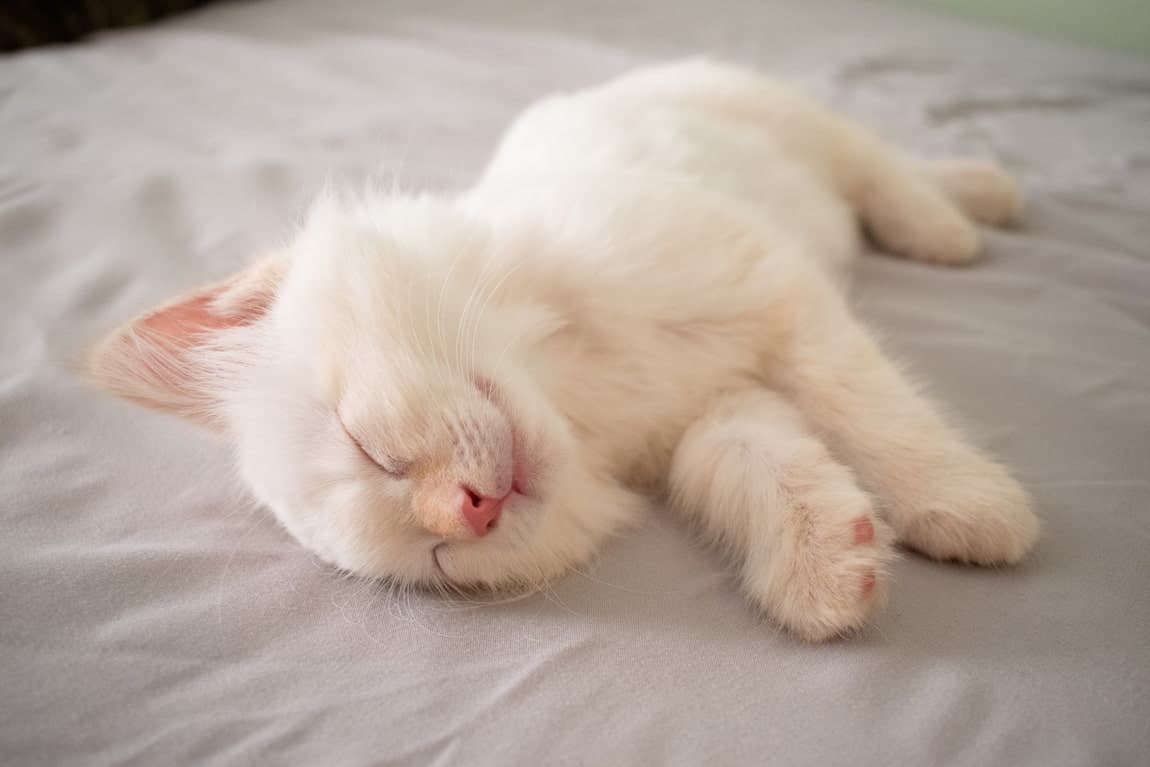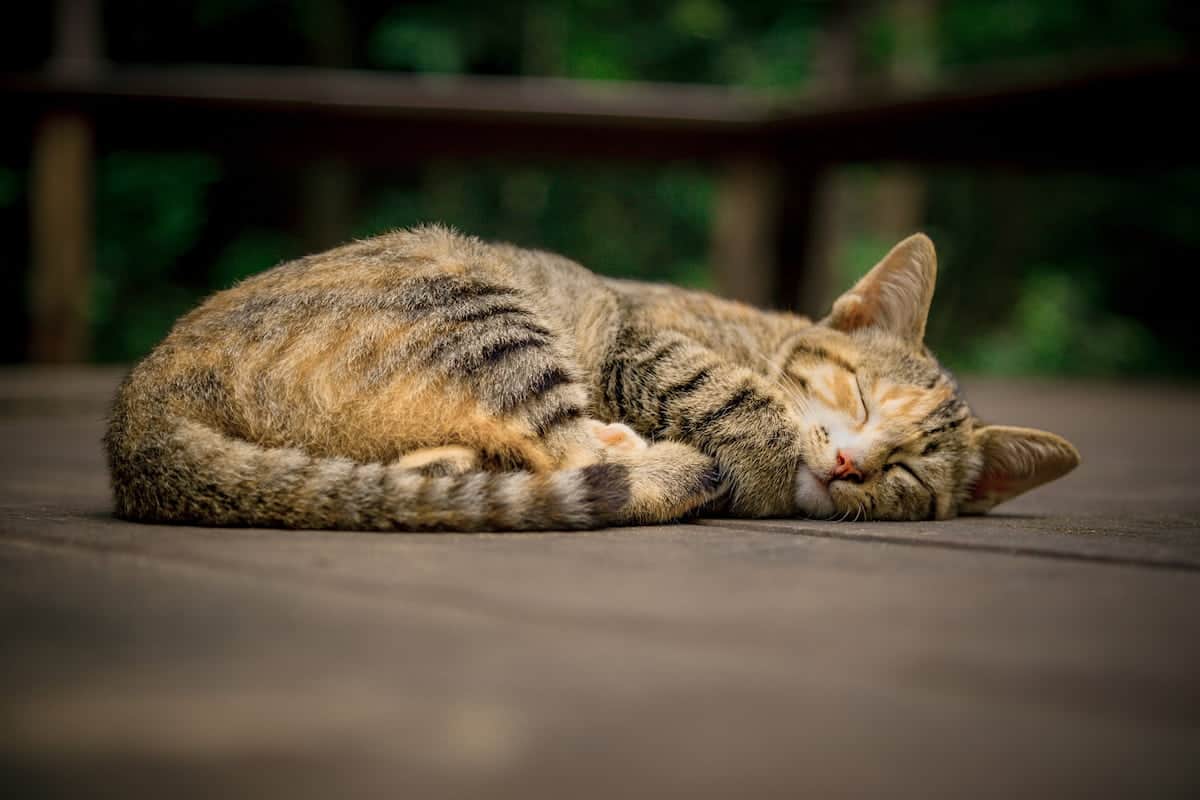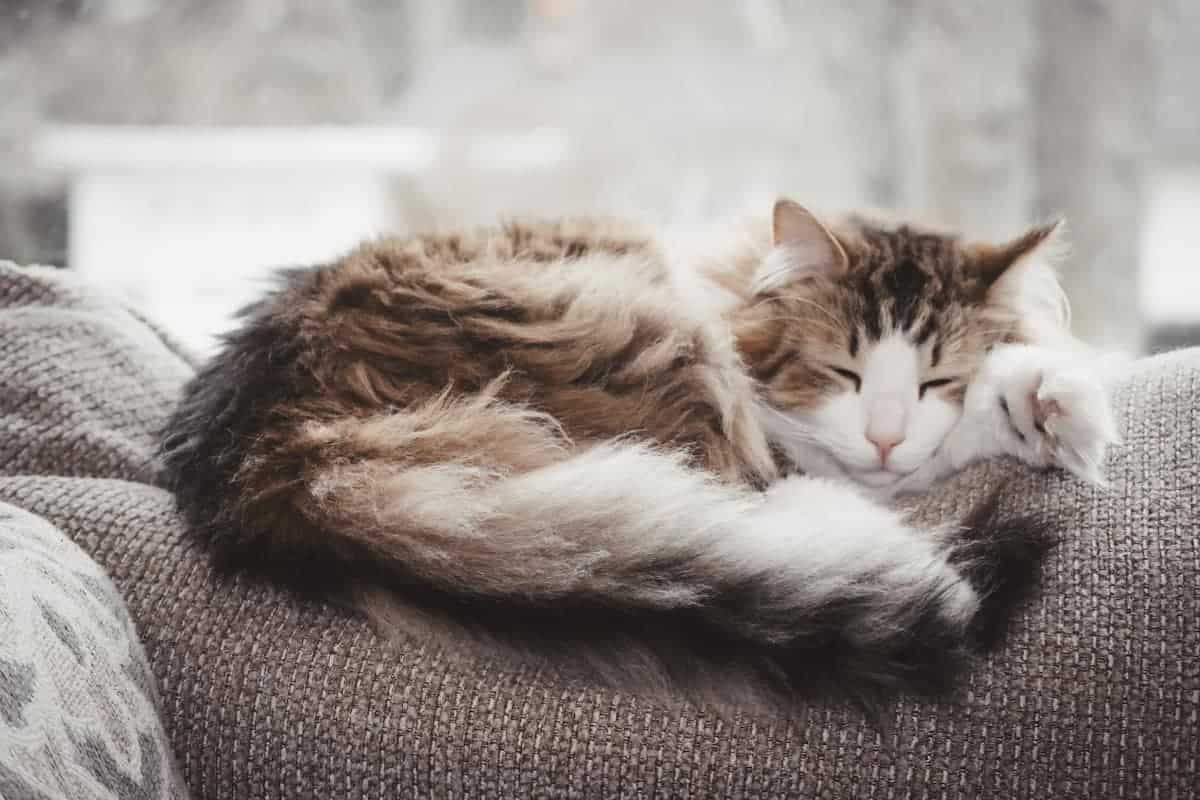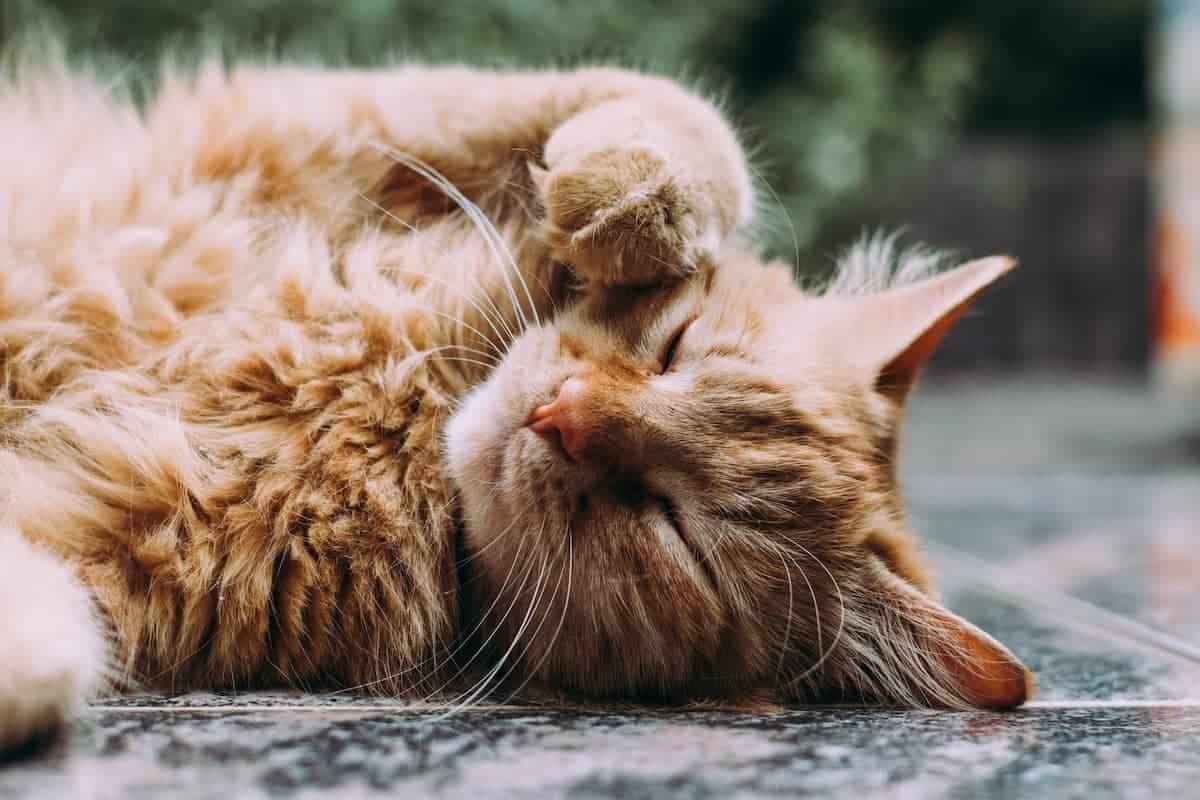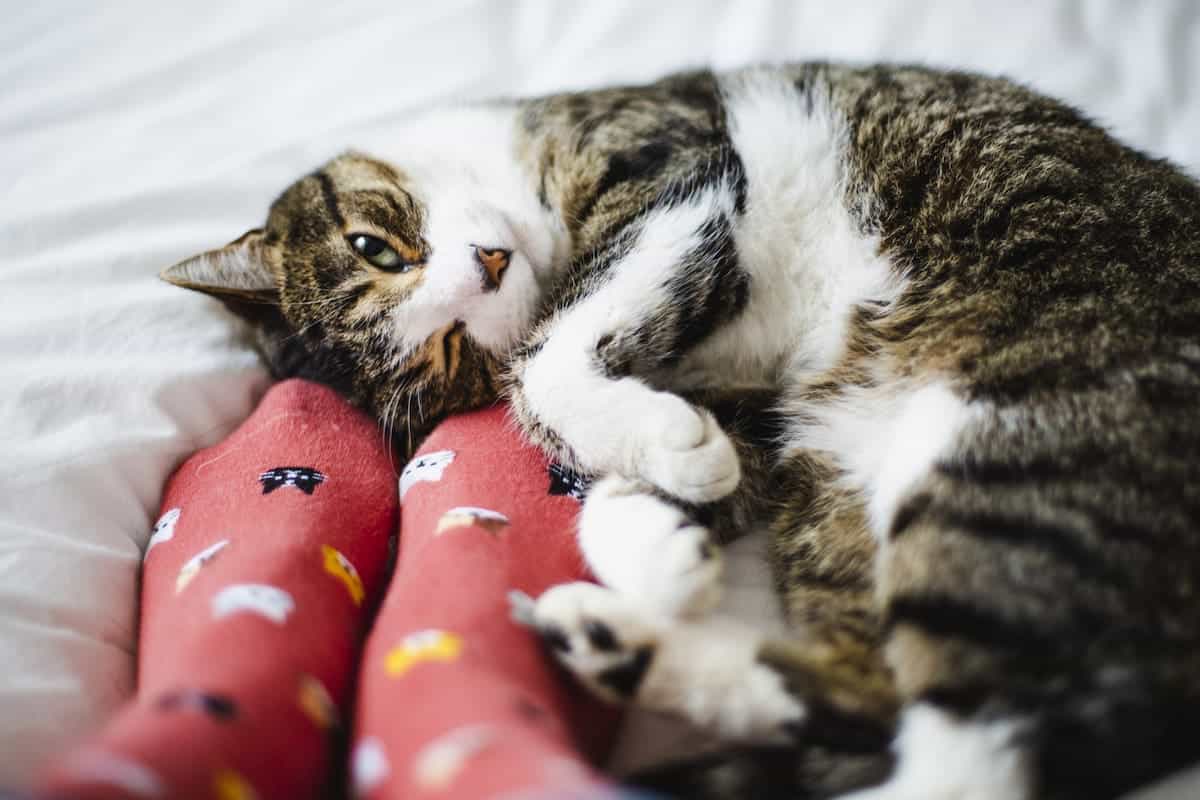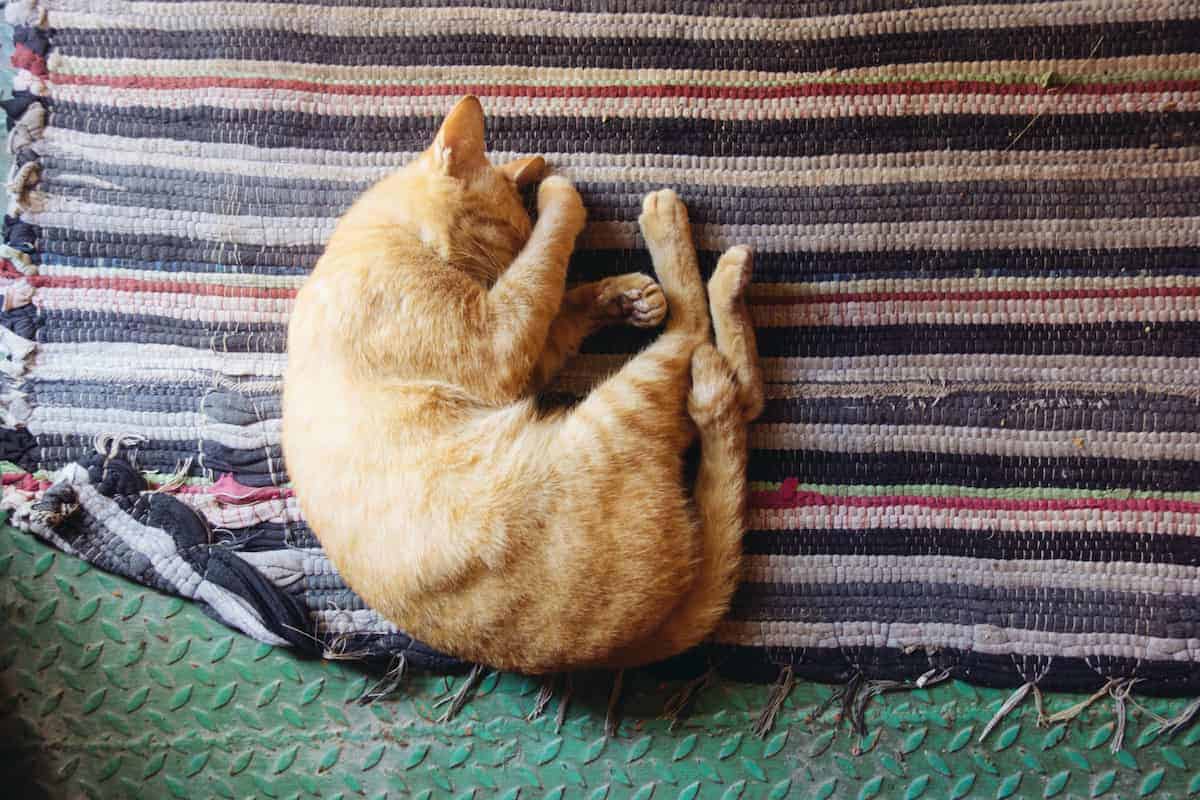If you have a new kitten, you probably feel like your life has been turned upside-down. Your schedule has suddenly become chaotic, and your purring furball constantly wants to be cuddled. But how much sleep does a kitten really need?
When it comes to your pets, more questions come up than answers. As cute as they may be, it can be hard to keep track of just how much sleep a kitten needs. You might worry about how much your kitten sleeps, but rest assured—that’s totally normal.
This article will explore how much kittens sleep, and all the various factors that influence their sleepy disposition.
How Long Do Kittens Sleep?
Getting a new kitten is exciting. It’s normal to want to cuddle and play with it all the time, but as you probably already noticed—it sleeps quite a bit.
Kittens are just like newborn babies. They need all the sleep they can get so they can grow into a strong and healthy house cat, but it may seem like they’re asleep all the time. When does it end?
You might be surprised to learn that kittens sleep around 90% of the time, which is nearly 22 hours each day. That doesn’t mean they’re unconscious for 22 hours straight though. It’s normal for kittens to sleep on and off all day, taking breaks from their short naps to eat, play, cuddle, and explore.
When Do Kittens Sleep?
As you can probably guess, kittens sleep almost all the time. This is a common characteristic of all house cats that never goes away, but it’s especially prevalent in kittens.
You might notice that your kitten is more active during irregular hours of the day. Its sleep pattern is different from ours. Cats are crepuscular mammals, so they’re most active as the sun is coming up and going down. Any other time of day, you’re more likely to find them dozing off for a nap.
The same pattern is present in kittens, but more sleep is needed to promote healthy growth, so they’ll be awake for a shorter length of time around dawn and dusk.
Where Do Kittens Prefer to Sleep?
Kittens are tiny and vulnerable. Loud noises and other disruptions will inhibit proper sleep, so it’s important to ensure they have an environment conducive to deep sleep.
There are a couple of things your kitten will prefer when it comes to finding the perfect spot to sleep. Safety and comfort are of the utmost importance to your kitten. Giving your kitten a designated bed, for example, is a good way to help it feel safe and at ease.
Like humans, kittens prefer to sleep in darkness (despite their obvious love for playing in the dark). Something such as a little box with a bundle of soft blankets inside will provide the perfect spot for them to get comfortable and doze off, ensuring they get the deep sleep they need for healthy growth and brain development.
How Long Should a Two-Month-Old Kitten Sleep?
Although younger kittens should sleep for around 20 to 22 hours each day, a two-month-old kitten should start sleeping less, resembling the sleep pattern of an adult cat. That means that they should be more active, and the number of hours they sleep should drop to around 18 hours per day.
At this stage, their sleep cycles will also have developed into shorter phases of approximately 30 minutes—including REM (rapid eye movement). So don’t be alarmed if you notice they’re sleeping less at this age. It’s just part of growing up!
How Much Sleep Is Too Much?
It’s difficult to say how much sleep is too much sleep for a kitten. As you know, they need ample rest to grow and develop healthy brain functioning. Typically, you don’t need to worry about your kitten oversleeping, but there are some things to look out for in terms of potential health problems.
It’s not a common problem, but if you notice your kitten sleeping a lot all of a sudden, as well as being less playful and lethargic, there could be an underlying health issue.
Anemia is a condition caused by a lack of red blood cells in your kitten’s body. This essentially results in oxygen deprivation, which makes a kitten slow and sluggish, and can be extremely dangerous for kittens. If you notice that your kitten’s gums are pale, you should take it to a veterinarian immediately for treatment.
Signs That Your Kitten Needs More Sleep
As you know, sleep is extremely important for the healthy development of kittens, and sleep deprivation can threaten their well-being and longevity.
Sleep deprivation can manifest in various ways, and signs of it may also vary from one kitten to the next. The most obvious sign of sleep deprivation is general lethargy. If your kitten is sleep deprived, it will be much less active, less interested in playing, and may even suffer from loss of appetite.
Stress can cause sleep deprivation as well. Overstimulation and fear from loud noises or other animals might negatively impact the sleep your kitten gets.
How to Make Sure Your Kitten Gets Enough Sleep
Making sure your kitten gets ample rest is crucial to its overall health and growth. The best way to make sure your kitten is rested is to help it feel safe. Dogs and other large pets might place unnecessary stress on your kitten, which can negatively impact its sleep. So make sure your kitten has a place of its own that is quiet and isolated to help it feel safe and secure while it rests.
You might not need to try, but make sure your kitten also gets plenty of exercise during playtime. This will help your kitten fall asleep faster and reach deep sleep, which is essential for normal growth.
Conclusion
In this article, you’ve learned that it’s okay for your kitten to sleep for upwards of 20 hours in a day (sometimes up to 22 hours). Once it reaches the age of two months, its sleep requirement should naturally reduce to the normal amount for an adult cat. You’ve also learned that kittens need to feel safe to get healthy sleep, and that slow and lethargic behavior during waking hours can be a sign of health issues that should be explored and treated as soon as possible.
